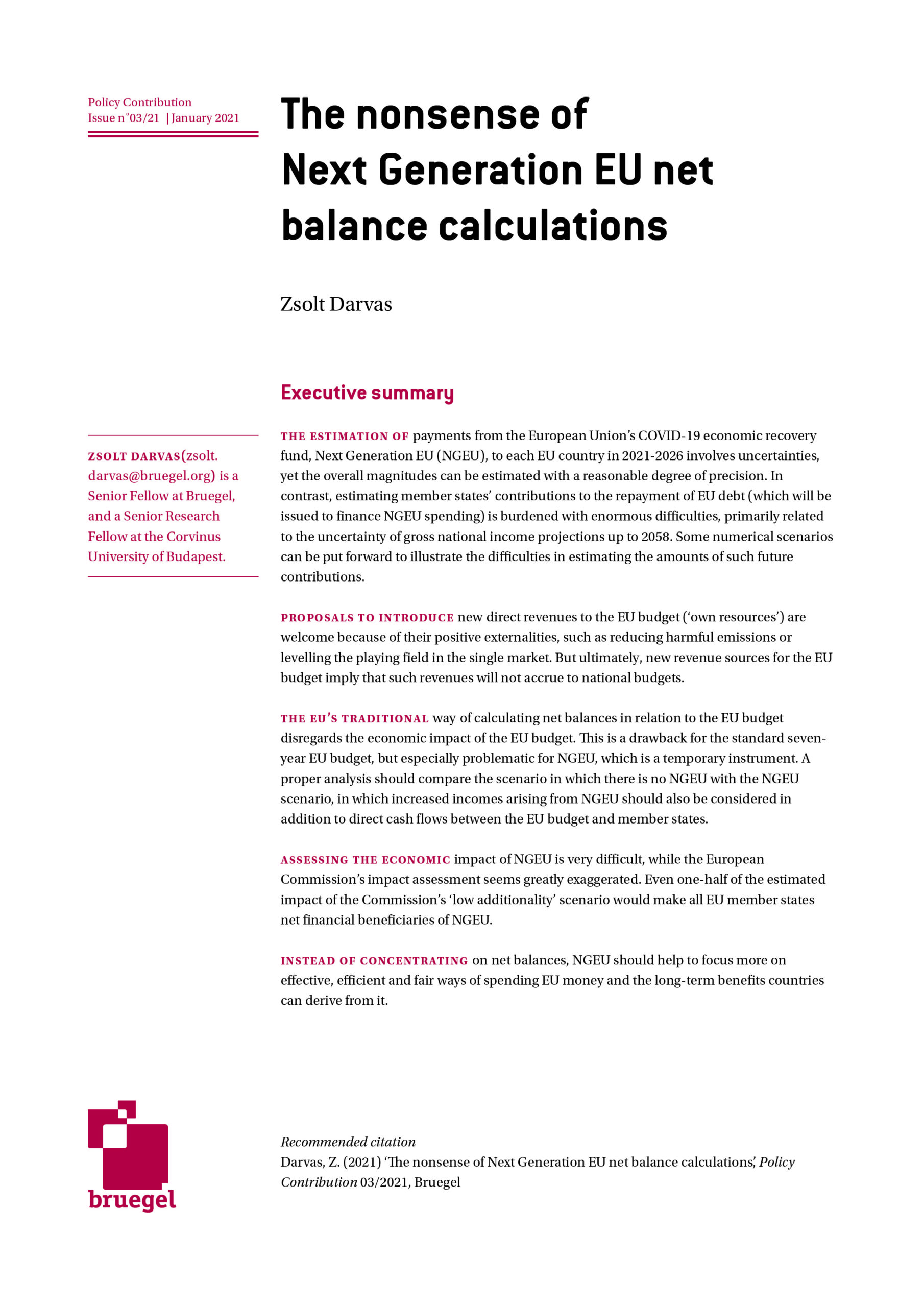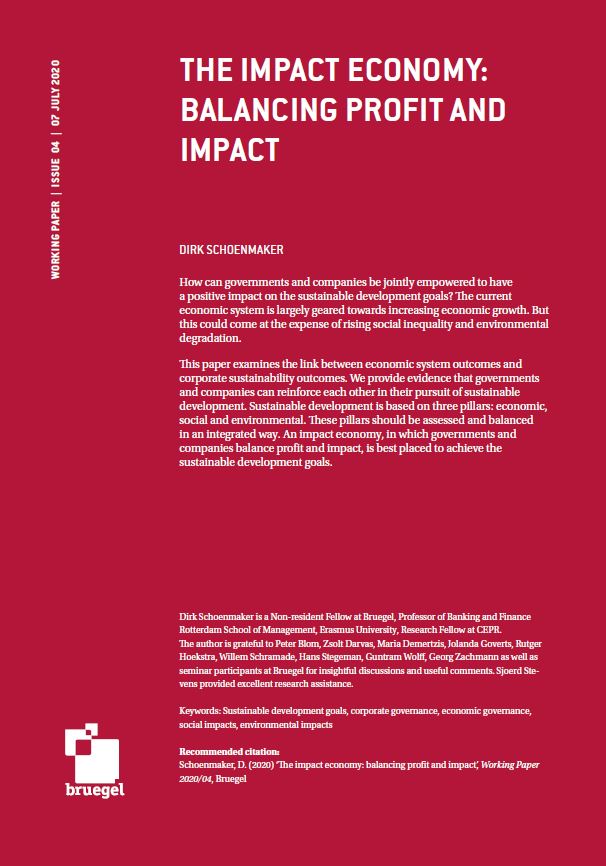Policy Contribution
The nonsense of Next Generation EU net balance calculations
Estimates of payments countries will receive from the Next Generation EU instrument can be made with some degree of precision. But estimating countries' repayments up to 2058 is extremely difficult.
The estimation of payments from the European Union’s COVID-19 economic recovery fund, Next Generation EU (NGEU), to each EU country in 2021-2026 involves uncertainties, yet the overall magnitudes can be estimated with a reasonable degree of precision. In contrast, estimating member states’ contributions to the repayment of EU debt (which will be issued to finance NGEU spending) is burdened with enormous difficulties, primarily related to the uncertainty of gross national income projections up to 2058. Some numerical scenarios can be put forward to illustrate the difficulties in estimating the amounts of such future contributions.
Proposals to introduce new direct revenues to the EU budget (‘own resources’) are welcome because of their positive externalities, such as reducing harmful emissions or levelling the playing field in the single market. But ultimately, new revenue sources for the EU budget imply that such revenues will not accrue to national budgets.
Instead of concentrating on net balances, NGEU should help to focus more on effective, efficient and fair ways of spending EU money and the long-term benefits countries can derive from it.
The EU’s traditional way of calculating net balances in relation to the EU budget disregards the economic impact of the EU budget. This is a drawback for the standard seven-year EU budget, but especially problematic for NGEU, which is a temporary instrument. A proper analysis should compare the scenario in which there is no NGEU with the NGEU scenario, in which increased incomes arising from NGEU should also be considered in addition to direct cash flows between the EU budget and member states.
Assessing the economic impact of NGEU is very difficult, while the European Commission’s impact assessment seems greatly exaggerated. Even one-half of the estimated impact of the Commission’s ‘low additionality’ scenario would make all EU member states net financial beneficiaries of NGEU.
Instead of concentrating on net balances, NGEU should help to focus more on effective, efficient and fair ways of spending EU money and the long-term benefits countries can derive from it.
Recommended citation
Darvas, Z. (2021) ‘The nonsense of Next Generation EU net balance calculations’, Policy Contribution 03/2021, Bruegel



